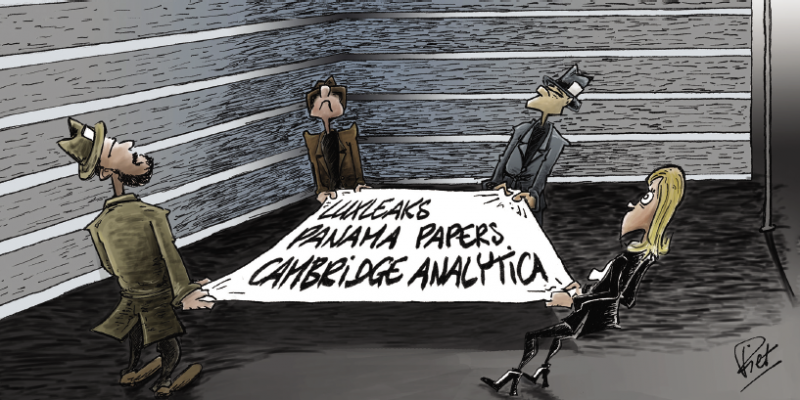New brochure examines whistleblowing from the journalists’ perspective

The European Commission published on 23 April 2018 a proposal for a directive on the protection of persons reporting on breaches of Union law. The European Federation of Journalists (EFJ) welcomed this initiative, while warning that the legislative text doesn’t fully meet the criteria to establish a robust protection against retaliation for whistleblowers at the European level.
In a brochure published in September, Quentin Van Enis, a legal expert specialised in media, lecturer at the University of Namur and member of the Belgian press council (CDJ), analysed for the EFJ the draft directive from the journalists’ perspective.
The author highlighted the “tier approach” as the main concern for journalists and the right to information, as it establishes in principle the obligation for the whistleblower to report internally before being allowed to report to an external authority. The public reporting channel, through media for example, is only authorised in the last resort, when other channel have proven ineffective.
Yet the latest big scandals have shown the important role of the media in filtering, analysing data and exposing wrongdoing or breach of laws to inform the public. Some information are so serious that it deserves public exposure, irrespective of the availability of reporting mechanisms. The EFJ believes that whistleblowers must not be blamed – and lose the protection – for not choosing the right channel to reveal the information (see EFJ full position).
Extract:
The proposed Directive opts for a “tier approach” (…). Though Article 13 of the proposal provided for exceptions to the obligation is described as a prerequisite for granting the protection to a whistleblower, it seems dif ficult for the whistleblower to predict with an adequate degree of certainty whether he/she will be allowed to avail himself/herself of these exceptions in his/her concrete situation. What does it qualitatively mean, for instance, the absence of “appropriate follow-up” by an internal or external reporting procedure which would authorise the whistleblower to publicise the reported breaches? What cover “imminent or manifest danger for the public interest” or “the particular circumstances of the case”, “a risk of irreversible damage” which could justify that it “could not reasonably be expected” to use internal and/or external reporting channels?
On this point, the text of the Commission is also less protective than the recommendation of the Committee of Ministers of the Council of Europe. While setting out the various reporting channels available for whistleblowers, it is admitted in the text that “the individual situation of each case shall determine the most appropriate channel”.
Read the full analysis below in three languages: English, French and German.
Robust whistleblower protection is a crucial challenge for the European democracy – EN
Une robuste protection des lanceurs d’alerte, un enjeu crucial pour la démocratie européenne – FR
Nachhaltiger Whistleblower-Schutz: eine äußerst wichtige Herausforderung für die Demokratie in Europa – DE






